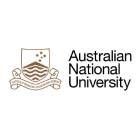Master of National Security Policy
Master of National Security Policy
This degree prepares new generations of national security policymakers, analysts, researchers and leaders, in line with the vision of the National Security College as a unique joint initiative between The Australian National University and the Australian Government. It offers a world-class qualification in national security. Core courses provide foundations in…
Categories
COURSE DESCRIPTION
This degree prepares new generations of national security policymakers, analysts, researchers and leaders, in line with the vision of the National Security College as a unique joint initiative between The Australian National University and the Australian Government. It offers a world-class qualification in national security. Core courses provide foundations in concepts and practical policy skills, with a focus on navigating the Australian security landscape. Electives examine the horizon of present and future risks, from pandemics, climate change, terrorism and cyber attacks through to Indo-Pacific geopolitical crises, US-China tensions, foreign interference and information warfare. To address these challenges, students may choose a policy grounding in security-related aspects of such areas as law, bureaucracy, politics, ethics, history, intelligence, geoeconomics, risk-management, civil-military relations, migration, gender, energy and critical technologies.
This Masters degree is designed around a signature teaching model: each course integrates academic expertise from NSC, Crawford and across ANU with the direct insights of leading policy practitioners from Australia and internationally, drawing on the NSC’s exceptional networks. This degree equips graduates equally for careers in government agencies or for the many other professional pathways where it matters to understand 21st century security.
Career Options
ANU ranks among the world’s very finest universities. Our nearly 100,000 alumni include political, business, government, and academic leaders around the world.
We have graduated remarkable people from every part of our continent, our region and all walks of life.
REQUIREMENTS
Applicants must present one of the following:
- a Bachelor degree or international equivalent with GPA 5/7
- a Bachelor degree or international equivalent with GPA 4/7 and a minimum of 3 years full-time equivalent work experience at ANZSCO Skill Level 1 in a field related to the program
- a Bachelor degree or international equivalent with GPA 4/7 and a Graduate Certificate or international equivalent with a GPA of 4/7
- a Graduate Diploma or international equivalent with a GPA 4/7
- 48 units of courses in a postgraduate program with a GPA of 4/7
- Graduate Certificate or international equivalent with a GPA of 4/7 and a minimum of 3 years full-time equivalent work experience at ANZSCO Skill Level 1 in a field related to the program
- Graduate Records Examination (GRE) General test, completed no more than 5 years before the time of application, with a minimum score of 155 for Verbal Reasoning, 155 for Quantitative Reasoning and 4.0 in Analytical Writing and a minimum of 3 years full-time equivalent work experience at ANZSCO Skill Level 1 in a field related to the program
- a minimum of 10 years full-time equivalent work experience at ANZSCO Skill Level 1 in a field related to the program.
English Language Requirements
IELTS Academic and IELTS UKVI Academic [excluding One Skill Retake and IELTS Online] – Overall score of 6.5 overall with minimum 6.0 in each band.
TOEFL iBT Paper Edition and TOEFL iBT [excluding Paper Edition and Home Edition] – Overall score of 80 (Reading – 20; Writing – 20; Listening – 18; Speaking – 18).
Cambridge C1 Advanced – Overall score of 176 minimum 169 in each band.
PTE Academic and PTE Academic UKVI [excluding PTE Academic Online] – Overall score of 64 minimum 55 in each band.
EDUCATIONAL INSTITUTION
The Australian National University (ANU) is a public research university and member of the Group of Eight, located in Canberra, the capital of Australia. Its main campus in Acton encompasses seven teaching and research colleges, in addition to several national academies and institutes.




